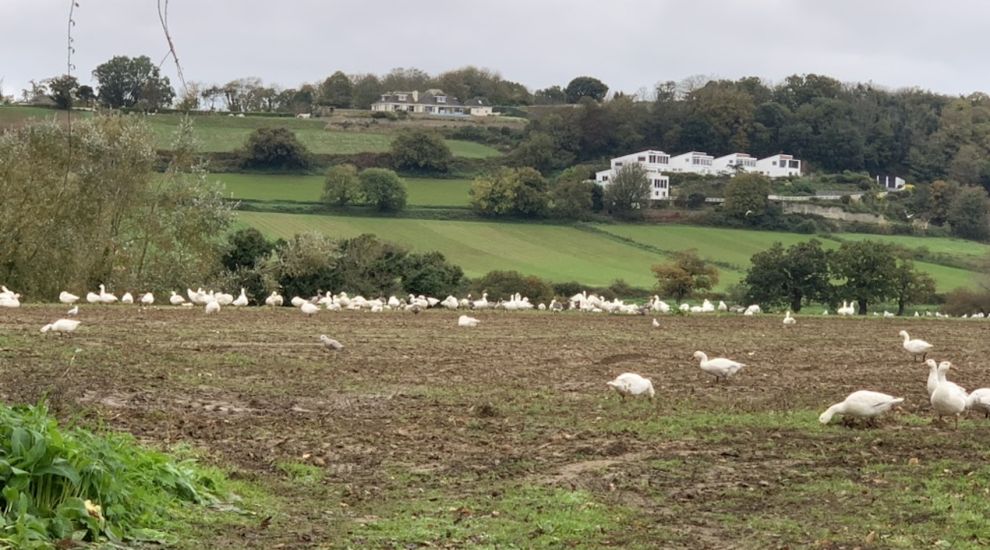


Growing populations of feral geese and chickens in Jersey's eastern wetlands are damaging protected habitats and increasing the risk of a bird flu outbreak, an environmental expert has warned.
Local environmentalist Bob Tompkins warned that the growing presence of these birds around Grouville's Les Prés Manor is disrupting a delicate ecosystem that supports over 50 bird species and diverse plant life.
The surge in geese and chickens over the past five years, he said, is being caused by well-meaning people feeding them.
He said: "Not only do they not need feeding, as there are ample natural food resources available, but the amount of food, especially bread, given to them gives little dietary benefit to them and simply drives an increase in their numbers and an increase in the rat population.
"I can understand people wanting to take their children and grandchildren to feed the chickens and watch the geese which would be all well and good if this activity was happening in a controlled environment such as a farmyard.
"The marsh, wet meadows and surrounding areas are precious and unique in the island and as such must be preserved as nature intended and not in the way the feral chickens and geese are altering this once beautiful part of Grouville."
The presence of more than 300 feral geese, he explained, has already affected the ecology of the marsh and wetlands by upsetting its natural balance and damaging vegetation.
The birds, which graze on grasses and wildflowers, have thinned out native plants. This has reduced the foraging areas for wild birds and allowed the invasive Hard Meadow Rush, a plant that disrupts the balance of the habitat, to spread.

Pictured: This shows the damage caused by the geese walking from their roost by the manor to the fields close to the marsh and the housing estate on Rue a la Don.
The geese have also begun to move onto nearby farmland and arable fields which has caused overgrazing and soil erosion.
Soil erosion, or the gradual loss of soil structure and quality, is especially problematic during heavy rain – which can further wash away the topsoil needed to support native plants.
Mr Tompkins warned that if these populations continue to grow, Grouville's marsh could lose its ecological and botanical value and become unable to support the range of species that rely on it.
"These birds should be totally culled to save the integrity of the habitat and wildlife and return the natural balance of this unique place," he said.
In addition to these ecological concerns, Mr Tompkins raised concerns about the risk of bird flu transmission.
A recent avian flu outbreak in France has increased the risk of infected migratory birds coming into contact with Jersey's local flocks in Grouville.
The chickens and geese could then become vectors for the disease and spread it to wild species like waders, woodcocks, snipes, gulls, starlings and pigeons.
Mr Tompkins warned that the H5N5 strain detected in France's Hauts-de-France region causes severe organ failure in infected poultry within 48 hours.
While chickens infected with this strain typically die within days, geese can carry the virus without symptoms and spread the disease widely.
Mr Tompkins added: "The virus can be spread by contact with airborne particles from infected birds landing on soils and vegetation that is then foraged by visiting birds or them coming into contact with infected geese and chicken faeces."
Picutred top: The geese shown in this image are only part of the flock impacting the area and show how quickly this time of year they overgraze grass areas
Comments
Comments on this story express the views of the commentator only, not Bailiwick Publishing. We are unable to guarantee the accuracy of any of those comments.